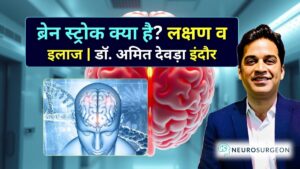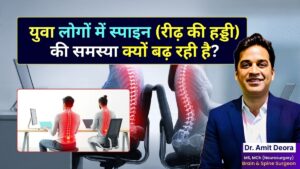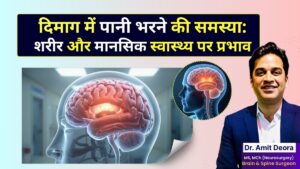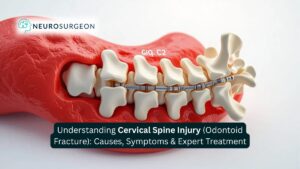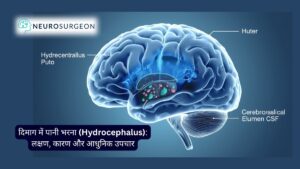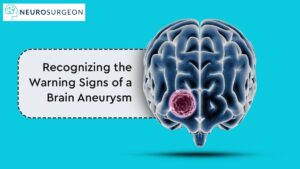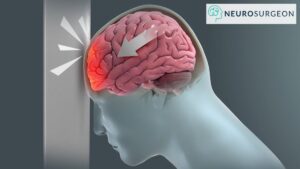Ever wake up, and your back hurts for no reason? Or you tweaked it, lifting something heavy, and now it’s hard to stand up straight. Chances are you’ve got a slipped disk in your spine. Those disks act as cushions between your vertebrae, and when one slips or ruptures, it can press on nerves and cause pain that radiates down your leg or up into your neck.
Slip disks are no fun, but some things put you at a higher risk of damaging those disks in your back. Before your back hurts again, check out these five causes of slip disks and how to avoid them.
Table of Contents
ToggleWhat is a Slipped Disc?
A slipped disk, or herniated disk, happens when the soft center of a spinal disk pushes through a crack in the more rigid exterior. The jelly-like nucleus pulposus squeezes out, pressing on nearby nerves.
Ouch! That’s what causes the pain. The disk material irritates nerves, making your back ache, burn, or tingle. You may feel pain, numbness, or weakness in your back, buttocks, thighs, or feet. Bending, twisting, or sitting too long can trigger flare-ups.
Symptoms Of Slipped Disc
You could have a slipped disk if your back hurts and pain shoots down your leg or arm. A slipped disk, also called a herniated disk, happens when the soft center of a spinal disk pushes through a weak spot in the more rigid exterior.
The pain from a slipped disk usually comes on gradually, but it can also happen suddenly. Some common symptoms include:
- Arm or leg pain that gets worse when you sit bend, or twist
- Numbness or tingling in an arm or leg
- Muscle weakness in an arm or leg
A slipped disk in the lower back can cause pain in the buttocks, thigh, and calf. One in the neck can cause shoulder, arm, and wrist pain. The pain often gets worse with movements like bending over, twisting, or lifting.
If pain from a slipped disk does not improve with rest, ice, physical therapy, medication, and exercise, see Neurologist in Indore. They may recommend minimally invasive treatments like steroid injections to reduce inflammation. In severe cases, you may need back surgery to remove or repair the damaged disk.
Top Causes of Slipped Disc
Doing the same motions over and over can put stress on your back and disks. Sitting for long periods, especially with poor posture, is a significant cause of slipped disks. Take regular breaks to stand up, move around and stretch. Keep your back supported, feet flat on the floor, and knees slightly higher than your hips when sitting.
Be extra careful if your job requires repetitive lifting, bending, or twisting. Always lift with your legs and not your back. Keep the weight close to your body and avoid jerking motions. Take micro-breaks to change positions and stretch. Building core strength with exercises like planks and bridges can also help support your back.
Outside of work, vary your routines and activities as much as possible. Mix up your workouts, switch between standing and sitting, walk around while on the phone, and take the stairs when possible. Little changes can make a big difference in preventing back strain and injury over time. Staying active and flexible is critical to keeping your back and the disks between each vertebrae healthy.
Tips to Prevent Slipped Disc
To prevent slipped disks in your back, focus on good habits and proper care of your spine.
Exercise Regularly
Exercise keeps your back muscles strong and flexible. Try low-impact exercises like walking, swimming, or yoga. Even going for a 30-minute walk a few times a week can help. Staying active will keep your back in shape and less prone to injury.
Use Good Posture
Pay attention to your posture, especially if you sit a lot. Keep your back straight and supported, your feet flat on the floor, and your knees slightly higher than your hips. Use a lumbar support cushion for your lower back. Taking breaks to stand up, move around, and stretch also helps.
Practice Safe Lifting
Bend at your knees and keep your back straight when lifting heavy objects. Hold the thing close to your body and avoid twisting motions. Don’t lift heavy objects – ask someone else for help or use a dolly.
Rethink Your Sleeping Position
Sleep on your back or side with support under your knees. A medium-firm mattress is best. Avoid sleeping on your stomach.
Stay Smoke-Free
Smoking reduces blood flow to your disks and connective tissues, slowing healing. Quitting significantly lowers your risk of back problems and improves your overall health. Ask your doctor for resources to help you stop.
Making healthy choices and caring for your back daily can help prevent painful slipped disks. Be kind to your spine, and it will support you for years.
Treatment For Slipped Disc
The good news is that there are several treatment options for a slipped disk, depending on the severity of your symptoms. The goal is to relieve pressure on the nerve, reduce inflammation, and allow the disk to heal.
Medication
Best Neurologist in Indore doctor may first recommend an over-the-counter pain reliever like ibuprofen to reduce inflammation and ease pain. Muscle relaxants or oral steroids may also help. If these aren’t effective, prescription medication may be needed.
Physical therapy
Gentle exercises led by a physical therapist can help strengthen your back muscles, improve flexibility, and relieve pressure on the disk. Aquatic therapy in a pool is often very therapeutic. Massage therapy may also provide relief.
Injections
Steroid injections can help reduce inflammation around the disk. An epidural injection places steroids around the spinal cord to relieve nerve pressure. These provide temporary relief but may need to be repeated.
Surgery
If your condition does not improve with other treatments or your symptoms are severe, your Neurologist in Indore may recommend surgery to remove part of the disk. Spinal fusion may be needed to stabilize the spine as a last resort. Surgery should only be considered if nerve or spinal damage or pain is intolerable.
The key is to try conservative treatments before opting for riskier options like surgery. Most slipped disks heal independently with proper rest, physical therapy, medication, and lifestyle changes. Be patient through the process, and know that there are many resources to help relieve your back pain and recover mobility.
Conclusion
So there you have it – common reasons why your back may be hurting and ways to avoid further damage or prevent issues in the first place. The good news is that with rest, physical therapy, medication, or, in severe cases, minimally invasive treatments, most herniated disks can heal, and the pain will subside over time.
But prevention is always better than treatment, so do your back a favor and practice good posture, stay active and fit, lift properly, and avoid prolonged sitting or bed rest. Your back will thank you for it, and you’ll be less likely to end up with an aching back, wondering why it hurts in the first place!


